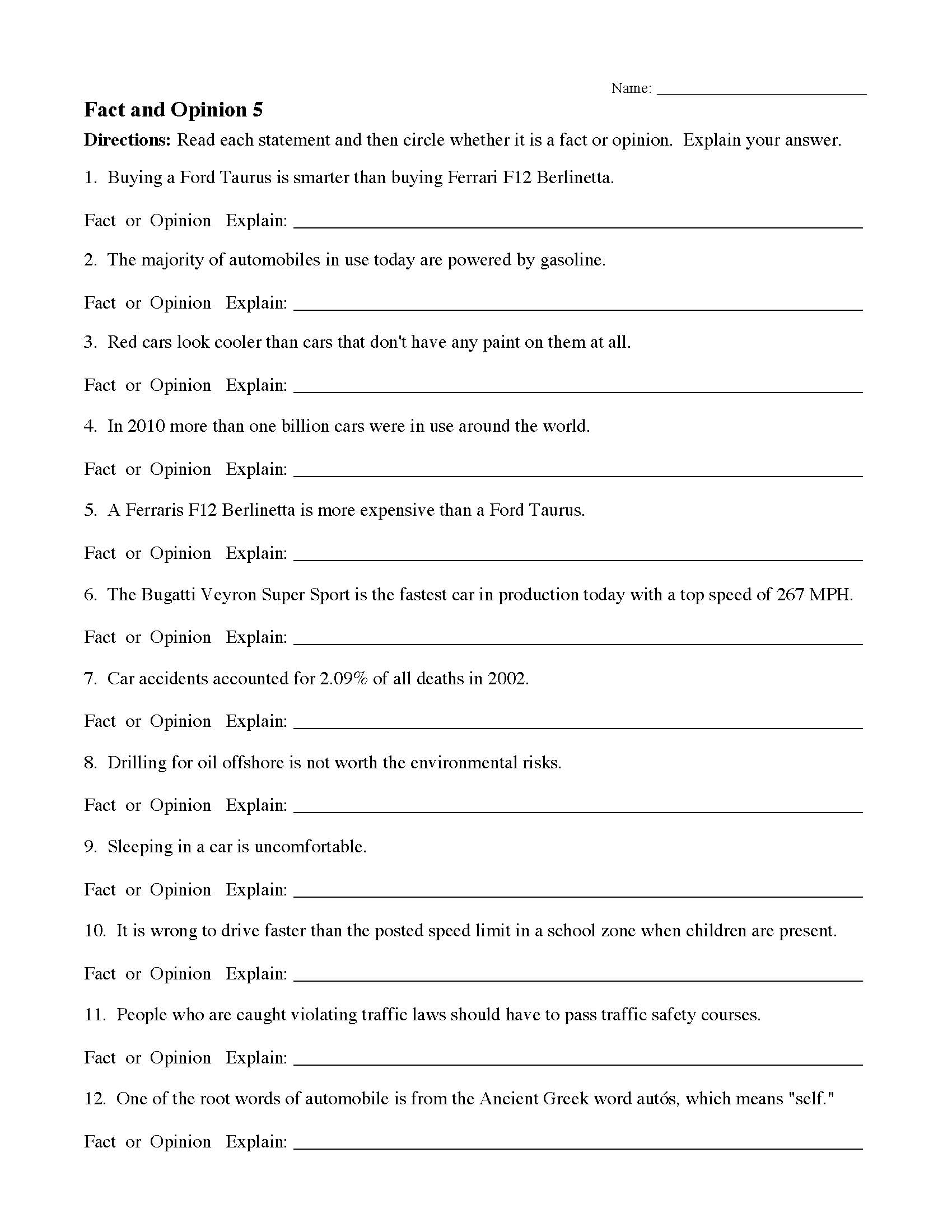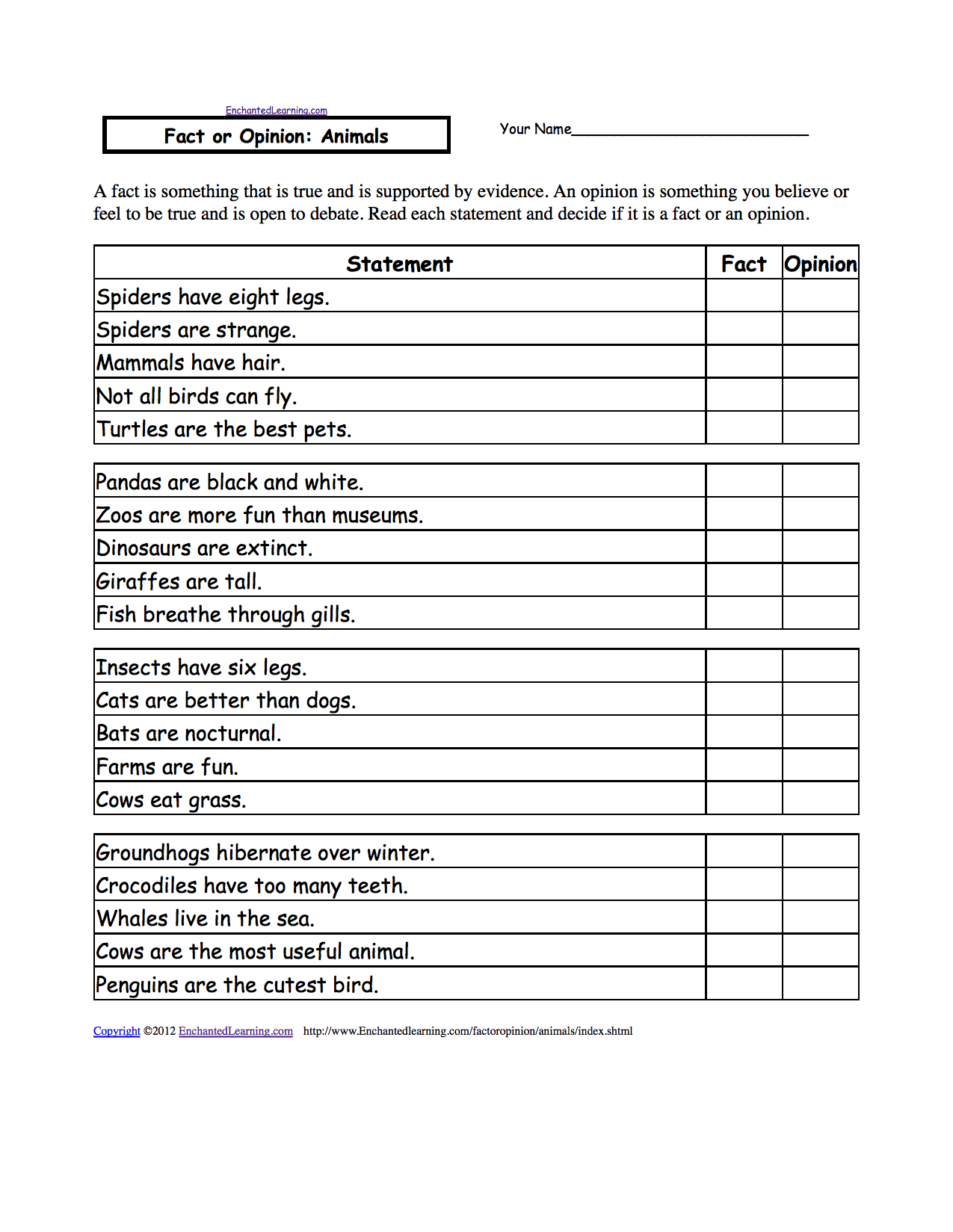When it comes to critical thinking and analysis, distinguishing between facts and opinions is crucial. While facts are objective and can be proven true or false, opinions are subjective and based on personal beliefs or feelings. This differentiation plays a significant role in various aspects of life, from academic research to everyday conversations.
Teaching the concept of fact vs opinion to students is essential in developing their critical thinking skills and helping them navigate the vast amount of information available to them. One effective way to reinforce this concept is through the use of worksheets that provide practice in identifying and distinguishing between facts and opinions.
Fact vs Opinion Worksheet
A fact vs opinion worksheet typically consists of a series of statements or passages that students must analyze and categorize as either facts or opinions. These worksheets can be designed for various subjects and grade levels, making them versatile tools for educators.
One common type of fact vs opinion worksheet presents students with statements such as “The Earth is round” and “Chocolate ice cream is the best flavor.” Students are then prompted to determine which statements represent facts that can be proven true or false and which ones are opinions based on personal preferences.
By engaging with these worksheets, students not only practice their critical thinking skills but also learn to evaluate information more effectively. They develop the ability to question and verify the validity of statements, which is a valuable skill in today’s information-rich world.
Furthermore, fact vs opinion worksheets can be tailored to specific topics or themes, allowing students to apply their understanding of the concept in different contexts. This adaptability makes the worksheets a versatile tool for educators seeking to reinforce the importance of critical thinking in various subject areas.
In conclusion, fact vs opinion worksheets are valuable educational resources that help students differentiate between objective facts and subjective opinions. By engaging with these worksheets, students develop essential critical thinking skills that will serve them well in their academic pursuits and beyond.

